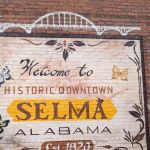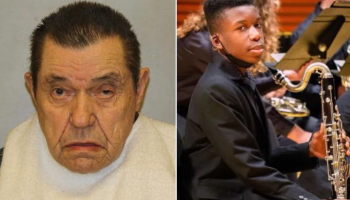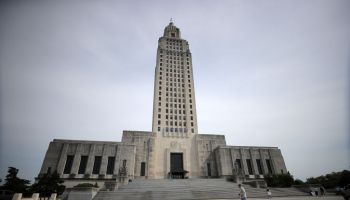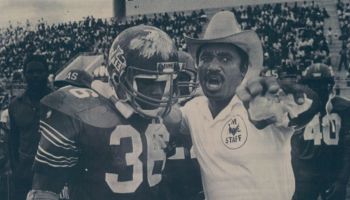
Source: Kannan Sundaram / Getty
History books are filled with interesting Black stories from the past. But the best tales came in the form of Black folklore, passed down through generation whispers.
MORE: Ghost Of Mary Ellen Pleasant: The Voodoo Queen Of San Francisco
Often these stories can be very difficult to find. They aren’t taught to us in schools and many of them can’t be traced in reports or newspaper clippings. This is when we turn to our storytellers, the authors who embody a part of our culture that has been hidden by history’s victors. One of those authors who dedicated their lives to telling the lost stories of Black Americans is Patricia C. McKissack.
Since I began writing Black Folklore in 2020, I have been introduced to a side of Black History that I never knew existed. Extraordinary supernatural tales of ghosts and spirits intertwined with real-life events from Black History. As amazing as those tales have been thus far, they’re nothing compared to the world that was introduced to me after reading Patricia C. McKissack’s book, Dark-Thirty: Southern Tales of the Supernatural.
Her 1992 children’s novel, which won a Newbery Honor and Coretta Scott King Award in 1993, tells the tales of supernatural activity occurring throughout times of slavery and civil rights in the Antebellum South. One of the most mesmerizing stories from McKissack’s tales is the story of the Pine Oak Brothers, Henri and Harper.
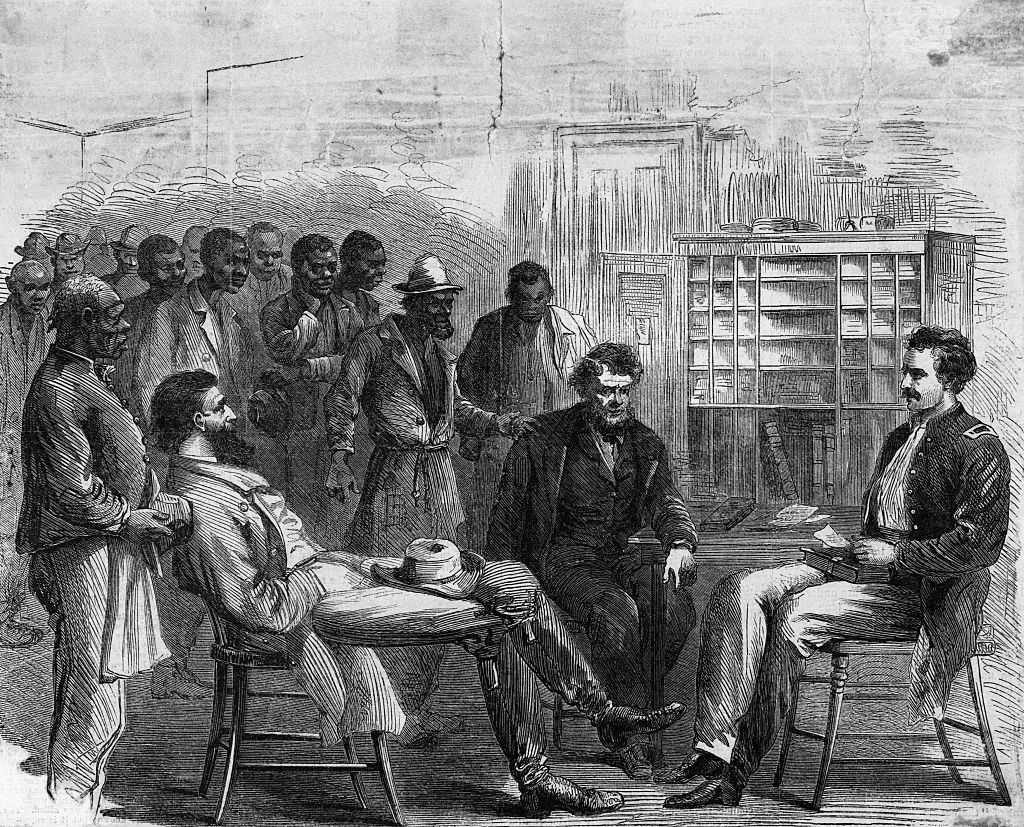
Source: Bettmann / Getty
The story begins with a Tennessee slave owner named Amos McAvoy. Amos was the master of a plantation called Pine Oak, which was built in 1801, the same year Thomas Jefferson became president. Amos inherited the plantation from his father and had aspirations to pass it down to his son. He would eventually meet his love, Alva Dean, marrying her and uniting two prominent slave-owning families for better profits. Unfortunately, tragedy would strike the McAvoy family as Alva died while giving birth to Amos’ firstborn Harper. Her death traumatized Amos, so much so that he abandoned his newborn son Harper and the Pine Oak plantation, fleeing to New Orleans. For the next 10 years, Amos would only come back to Pine Oak for a few weeks out of the year during harvest season, leaving Harper with his grandmother. Harper yearned for his father’s love, but rarely got it.
Then one day everything changed. Amos came back to Tennessee wanting to reconcile with his son, so he moved Harper back to Pine Oak in hopes of bettering the relationship. Amos then headed back to New Orleans to finish some business before permanently moving back to Pine Oak. When he returned he wasn’t alone. Accompanying Amos was a mulatto child about two years young than Harper. The boy’s name was Henri and Harper immediately noticed how much he resembled his father. When rumors started to swirl that Amos was Henri’s father, Amos never denied it.
He would eventually admit to Harper’s grandmother that he was the boy’s father, telling her that the child’s mother was dead and that he didn’t want another slave owner to mistreat him. Against everyone’s wishes, Amos brought Henri into Pine Oak putting him in charge of the stables. This infuriated Harper, who grew increasingly jealous of Henri and his relationship with his father, even though Henri was a slave. Harper’s jealousy for Henri would completely consume him as his hate for his brother was the only thing he could think about.
Henri was a hard worker and never complained about his bondage. He was eventually put in charge of Pine Oak operations and was allowed to marry the love of his life Charlemae, another slave who lived on the plantation.
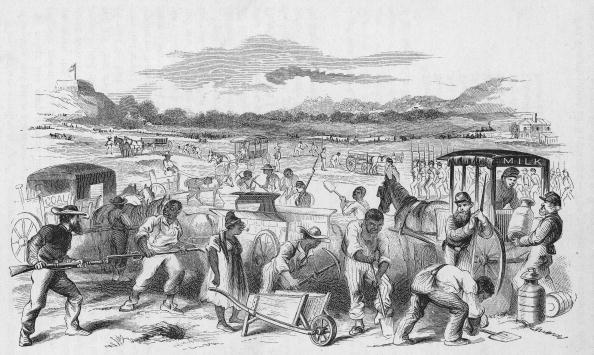
Source: Kean Collection / Getty
Amos also broke the news to Henri that he wasn’t actually a slave but a free man. Henri’s mother was freed by her mother after she was born, which meant Henri by law wasn’t a slave. Amos apologized for keeping this from him, telling Henri he didn’t want him running away before he could take care of himself. Surprisingly, Henri already knew he was free. His mother would often remind him of his freedom before she died. Henri promised Amos he would stay on run Pine Oak as long as he could be paid for his services. His goal was to buy his wife’s freedom and then leave Pine Oak to start a new life.
A few years later, Amos fell very ill. On his deathbed, he called out to his son and Harper, who was set to inherit the entire estate, came to his father’s aid. Amos’ last words to Harper were “Henri…tell him.” Amos died before finishing his sentence. This made Harper very angry and he dismissed his father’s last words. When Henri asked Harper if their father had mentioned anything about freeing his wife Charlemae, Harper said no, lying to Henri telling him their father suggested he sell his brother. He also threatened to keep Harper’s wife and new child out of spite.
But Henri never wavered or lost his composure, instead, he brought to Harper’s attention that Pine Oak was failing and now that their father was gone they’d have to work together to keep the place afloat. But Harper ignored him and continued to live a life of lavish, spending the plantation money on liquor and bad business decisions. When the bank came to collect, the first thing Harper sold was Henri, not knowing that he actually wasn’t an asset to sell.
Henri approached Harper explaining to him that he wasn’t a slave and that he couldn’t be sold. Confused, Harper questioned the validity of Henri’s claim stating that his father never told him that. But Henri had the paperwork and showed it to his half-brother. But Harper had already made the sale and the slavers were coming tomorrow to pick up their buck.
When the slavers arrived at Pine Oak Harper tried explaining that Henri was a free man and tried to entice the men to purchase Henri’s family instead but the men only wanted Henri. When Harper went to fetch Henri he was furious to learn that Henri and his family had escaped during the night.
The slavers, accompanied by Harper and their slave-catching hounds, began their search for the runaway slave family. The dogs chased the slave family along the Topps River swiftly erasing the family’s head start they had gained the night before.
As Henri and his family approached a crashing waterfall, they quickly realized they had run out of places to escape. Desperately trying to keep the dogs off their tail, the family climbed a steep cliff over the waterfall in a last-ditch effort. They had no place else to run.
Harper demanded that Henri and Charlemae surrender, following the family to the edge of the cliff, but their destiny had different plans. Charlemae handed their baby to Henri, then leaped into the raging waterfall. Henri then clutched his baby and dove into the waterfall behind Charlemae.
Shocked at what he just witnessed, Harper climbed to the spot that Henri just jumped from and gazed into the water searching for signs of life. All of a sudden three beautiful birds, a mother, a father, and a child bird, swoop from under the waterfall right past Harper and fly north. Frustrated at losing his brother, Harper curses the birds, yelling at them to come back until he loses his balance and falls into the raging waterfall. A few days later Harper’s body is found downstream. Henri, Charlemae and their young baby boy were never found or heard from again.
McKissack’s tale of the Pine Oak brothers and the mysterious disappearance of Henri and his family is just one of 10 amazing tales told in Dark-Thirty: Southern Tales of the Supernatural.
And although McKissack died in 2017, her legacy lives on through these extraordinary tales.
Click here to buy Dark-Thirty: Southern Tales of the Supernatural.
SEE ALSO:
The Black Seminoles: How Fugitive Slaves Escaped To Mexico Before The Civil War
Black Folklore In Video Episode 3: Seneca Village

